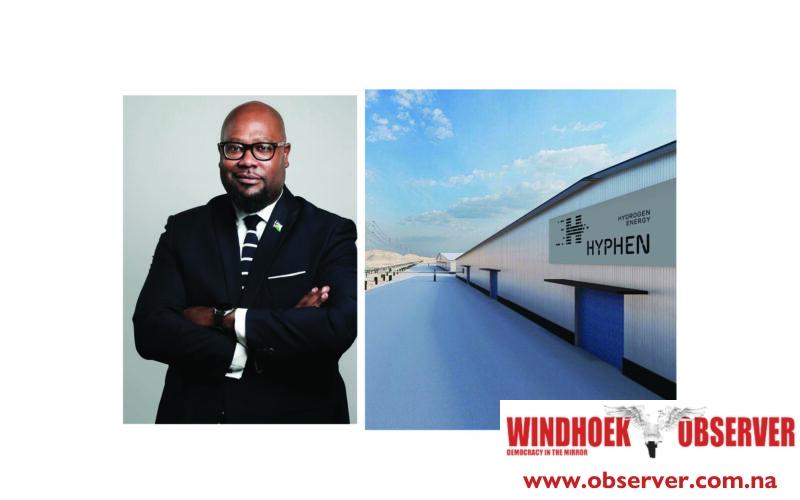Justicia Shipena
Hyphen Hydrogen Energy says no purchase agreement was ever signed with German energy company RWE Supply and Trading (RWEST) for the planned green hydrogen project at Lüderitz.
This comes after the Nama Traditional Leaders Association (NTLA) on Sunday said RWE had withdrawn from a deal to purchase ammonia from the project.
The NTLA said the decision was confirmed in a response to an inquiry it made together with international partners, including the Society for Threatened Peoples (STP), the European Centre for Constitutional and Human Rights (ECCHR), Forensic Architecture (FA), and Minority Rights Group International (MRG).
The NTLA and its partners argue the project violates indigenous rights on ancestral Nama land within Tsau||Khaeb National Park.
They claim the large-scale ammonia production facility continues colonial patterns of land dispossession and marginalisation, pointing to the area’s history as a restricted zone under German colonial rule.
Hyphen dismissed the allegations, insisting no binding deal was ever signed with RWE.
Hyphen’s communications and stakeholder relations lead, Ricardo Goagoseb, told the Windhoek Observer that the reports of RWE’s withdrawal were misleading.
“There was no purchase agreement in place. We only had a memorandum of understanding to explore potential off-take. For a project of this size, you sign MOUs or non-disclosure agreements to guide discussions and protect commercial information. But there was no purchase agreement,” he said.
Goagoseb added that Hyphen continues to engage with stakeholders, including traditional leaders, but stressed that the NTLA itself is divided and not fully constituted.
“The technical advisors speaking on behalf of NTLA are not the chiefs. Only the chiefs can represent the association, and many of them are currently in leadership disputes,” he said.
He rejected claims that the government and Hyphen are marginalising communities.
“That land is government land and has been for more than a century during different administrations. Traditional authorities are recognised by the government and have a seat at the table. They can raise any concerns directly with the government. Communities have been consulted through extensive roadshows. Chiefs attend our events and have been part of discussions,” he said.
Goagoseb said that the narrative was being driven by fundraising motives.
“There are international donor funds involved, and for that, people are creating problems that do not exist. Unfortunately, this has led to misinformation,” he said.
He added that Hyphen is open to engaging with all stakeholders “provided they are honest and sincere in the issues they want to address.”
Hyphen, a Namibian-registered company, is targeting production of one million tonnes of green ammonia annually by 2027, doubling output to two million tonnes by 2029.
The project, a British-German joint venture that includes German company Enertrag SE, covers 4 000 km² inside Tsau||Khaeb National Park.
Hyphen was appointed preferred bidder by the Namibian government to develop the country’s first green hydrogen export project.
In February 2023, it signed non-binding MoUs with two major industrial companies for the supply of up to 750 000 tonnes of green ammonia annually.
The agreements include 500 000 tonnes a year with a major chemical company and 250 000 tonnes with Approtium, a South Korean hydrogen producer.
At the same time, Hyphen also signed an MoU with RWE Supply and Trading for up to 300 000 tonnes annually from 2027.
At the time, Hyphen chief executive officer Marco Raffinetti said the conclusion of the agreements marked another step in Hyphen’s plan to export green hydrogen globally.
In the chemical industry, ammonia, one of the most common basic materials, is used in fertilisers and other processes. Global production exceeds 180 million tonnes annually.




